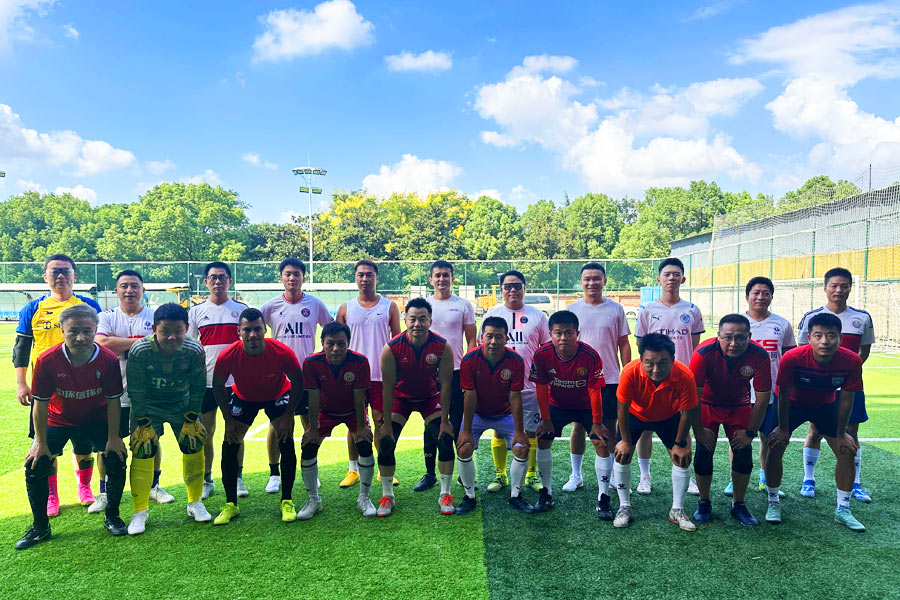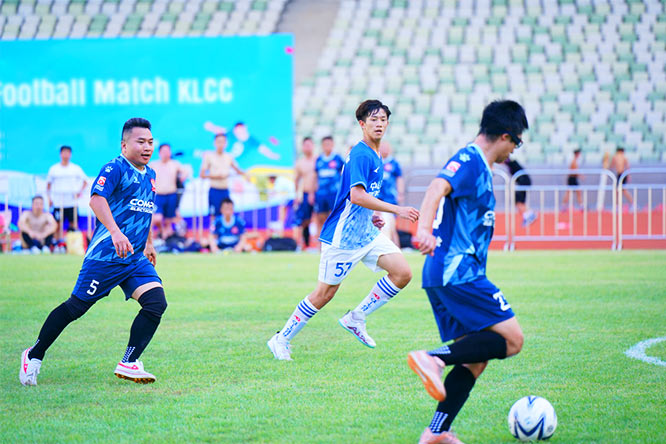As I lace up my football boots every Saturday morning, I'm reminded that I'm not just preparing for a game—I'm stepping into a community. For over a decade, my weekly football matches have been the foundation for some of my most meaningful friendships. There's something magical about the bonds formed on the field that transcends the game itself.
Team sports create a unique environment where relationships flourish naturally. The shared challenges, collective victories, and even the defeats create a powerful glue that binds people together. In this post, I'll explore the science and stories behind why team sports are such powerful relationship builders.
The Science Behind Sports Connections

Research shows that team sports trigger several psychological and physiological responses that foster connection:
- Endorphin release: Physical activity releases feel-good chemicals that create positive associations with teammates
- Synchronized movement: Coordinated activities increase feelings of trust and cooperation
- Shared goals: Working toward a common objective creates alignment and mutual understanding
- Oxytocin boost: Team successes trigger the "bonding hormone" that enhances social connections
A study from the University of Oxford found that rowers who trained together had significantly higher pain tolerance than those who trained alone—suggesting that shared physical exertion creates stronger social bonds.
"On the field, social barriers dissolve. Your teammate isn't defined by their job title or background—they're defined by their commitment to the team and their willingness to pass the ball when you're open."
My Personal Journey with Sports Friendships
I've experienced firsthand how sports friendships evolve through different stages:
The Evolution of Sports Friendships
- Stage 1: Teammates - Learning names and positions
- Stage 2: Trust Builders - Developing on-field chemistry
- Stage 3: Shared Struggles - Overcoming challenges together
- Stage 4: Victory Bonds - Celebrating wins creates emotional connections
- Stage 5: Lifelong Friends - Relationships that extend beyond the field
One of my closest friendships began with a simple pass during a football match 8 years ago. Raj, who was new to our team, made a perfect through-ball that led to a goal. That moment of unspoken understanding on the field blossomed into a friendship that has seen us through career changes, family milestones, and personal challenges.
Why Team Sports Create Stronger Bonds Than Other Activities
While many activities can foster connections, team sports offer unique advantages:
1. Vulnerability in Action
Sports require us to be vulnerable—to make mistakes in front of others, to need help, to acknowledge our limitations. This vulnerability creates authentic connections that superficial interactions can't match.
2. Shared Adversity
Overcoming challenges together—whether it's a tough opponent or terrible weather—creates bonds forged in adversity. These shared struggles become the foundation for trust in all aspects of life.

3. Non-Verbal Communication
Sports teach us to communicate without words—a knowing glance, a gesture, positioning on the field. This develops a deep understanding that translates to off-field relationships.
4. Diversity in Unity
My football team includes bankers, artists, teachers, and entrepreneurs from different cultural backgrounds. Sports creates a common language that transcends these differences.
The Lifecycle of a Sports Friendship
Through years of playing team sports, I've observed how these relationships evolve:
- Season 1: Learning names and positions
- Season 2: Post-game meals and conversations
- Season 3: Supporting each other through life events
- Season 5+: Becoming part of each other's families
My football team has celebrated weddings, welcomed newborns, and supported each other through losses. What began as a weekly game has become a support network that extends far beyond the pitch.
Building Your Own Sports Community
Ready to build meaningful connections through sports? Here's how to start:
Starting Your Sports Journey
- Find Your Sport: Choose an activity you genuinely enjoy
- Local Leagues: Search for recreational leagues in your area
- Consistency Matters: Regular participation builds familiarity
- Be Open: Invite teammates for post-game socializing
- Embrace All Levels: Focus on participation, not perfection
In Kuala Lumpur, I've found several great options for building sports connections:
- KL Recreational Football League (Saturday mornings)
- City Badminton Club (Beginner to advanced levels)
- Weekend Hiking Groups (Various trails around the city)
- Community Volleyball (Beach and indoor options)
Beyond the Game: When Sports Friends Become Life Friends
The true magic happens when sports friendships extend beyond the field. My teammates have become:
- Business partners on collaborative projects
- Support systems during challenging times
- Travel companions for adventures
- Mentors and mentees in professional development
Last year, when I faced a career transition, it was my football teammates who provided connections, advice, and emotional support. The trust we built on the field created a foundation for genuine support off the field.
The Lasting Impact of Sports Connections
As I look back on my sports journey, I realize the friendships formed through team sports have:
- Enriched my life with diverse perspectives
- Provided a reliable support network
- Created opportunities for personal growth
- Taught me the value of collaboration
- Given me a sense of belonging and community
The bonds formed through shared struggle, triumph, and teamwork create friendships that withstand the test of time. Whether you're 18 or 80, team sports offer a powerful pathway to meaningful connections.
So lace up your shoes, grab a ball, and step onto the field—you're not just joining a game, you're joining a community that could become your lifelong support network.

